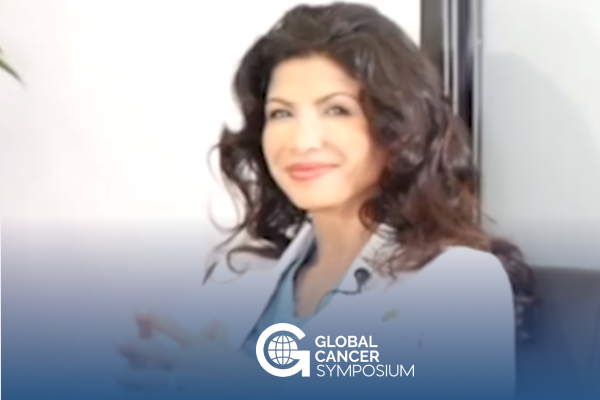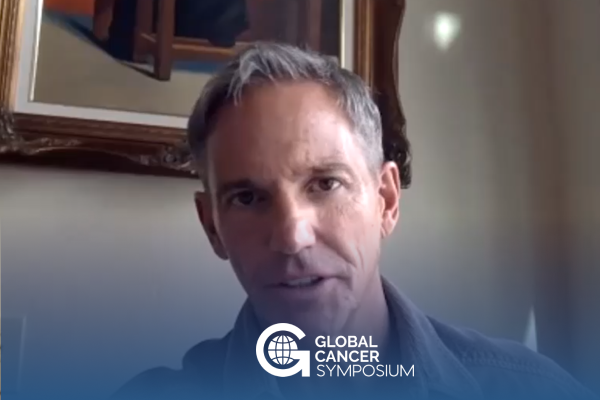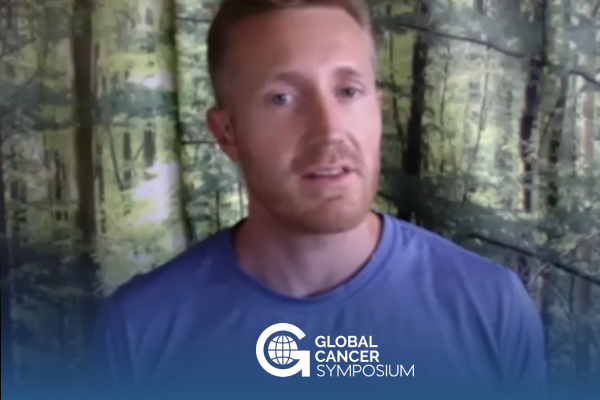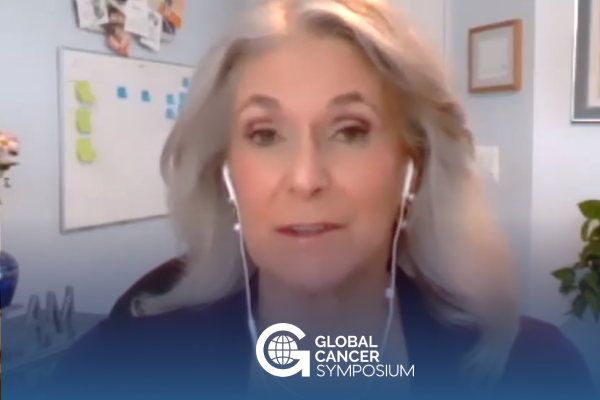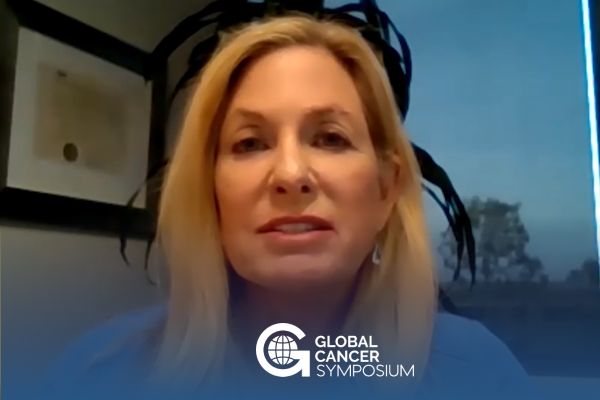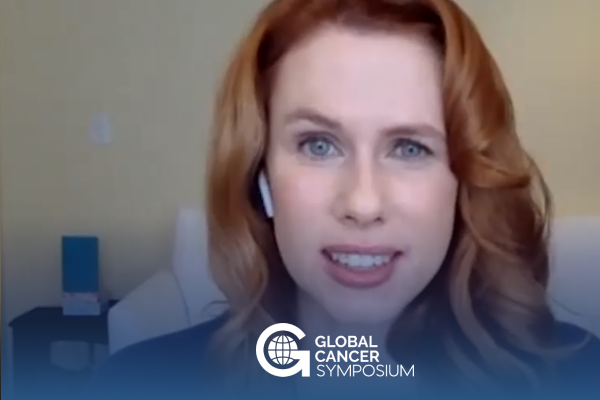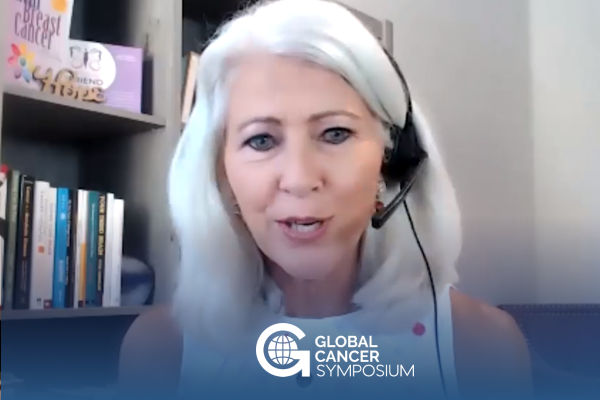Join the discussion below
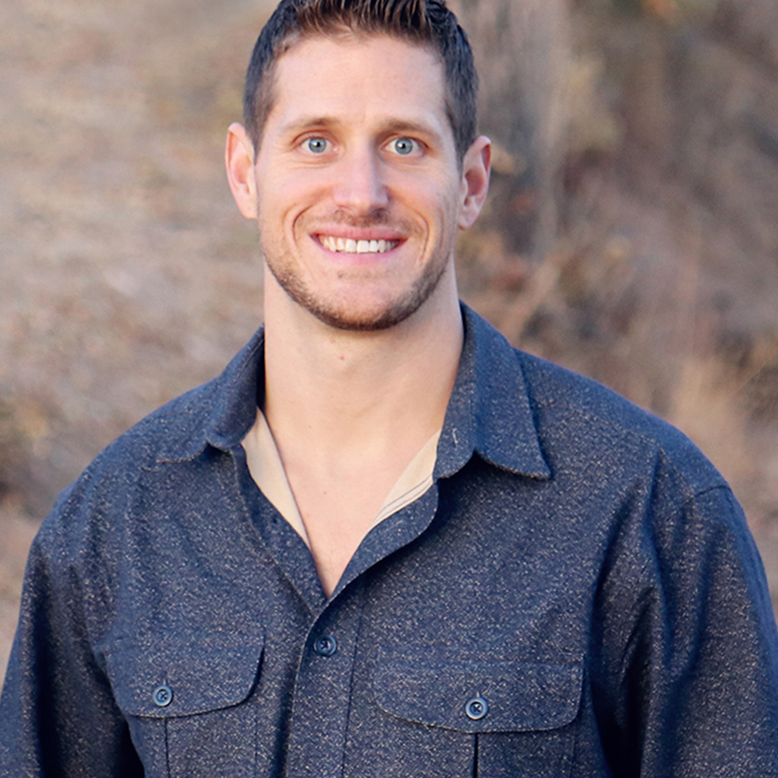
Nathan Crane is an award-winning author, inspirational speaker, plant-based athlete, event producer and 18x award-winning documentary filmmaker. Nathan is the Founder of The Panacea Community, Creator of the Global Cancer Symposium, and Director and Producer of the documentary film, Cancer; The Integrative Perspective. He is also the Director of Strategic... Read More
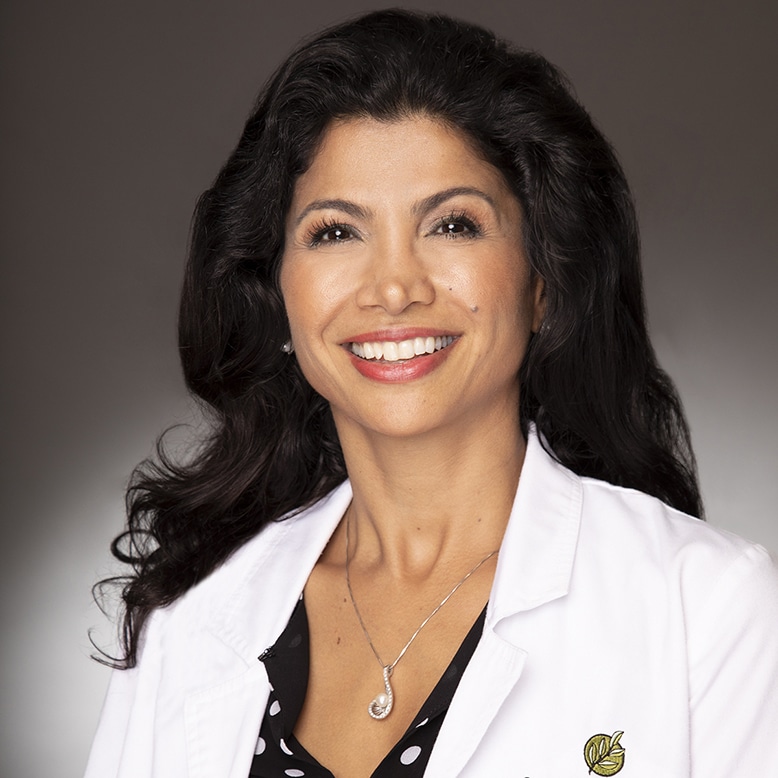
Raised in Sweden, Dr. Bita Badakhshan moved to Southern California in 1996. Upon arrival in the U.S., she completed her undergraduate studies at the University of California Irvine. Subsequently, she attended Graduate Medical School at St. George University and finished her Family Medicine Residency Program at North Shore-Long Island Jewish... Read More
Dr. Badakhshan has become a world leader in cancer care. She obtained extensive experience in both primary and urgent care. She holds the deep belief that the optimal way for her patients to achieve healthy lifestyles is through preventive health measures and endeavors to promote such measures at every opportunity in her everyday practice.
Related Topics
Allergies, Antibiotic Use, Antibiotics, Bloating, Blood Sample, Cancer, Chemo, Childrens Health, Chronic Infections, Circulating Tumor Cells, Detox, Diagnosis, Diet, Early Detection, Fecal Transplant, Genetic Mutations, Genetic Testing, Green Juice, Gut Health, Gut Issues, Hormone, Imaging, Immune Response, Immune System, Immune System Support, Leaky Gut, Lifestyle, Liquid Biopsy, Metastasis, Microbiome, Microbiome Health, Mitochondria, Parasitic Infections, Prevention, Radiation, Recurrence, Root Cause, Root Cause Approach, Skin Rashes, Stool Analysis, Surgery, Symptoms, Toxins, Tumor, Ultimate Prevention, Viral InfectionsNathan Crane
Hey, it’s Nathan Crane, Director of the Health and Healing Club and Host of the Conquering Cancer Summit, and today I am honored and excited to welcome you to a very special interview. Today, we’re talking with Dr. Bita Badakhshan who started out as a primary care physician. She’s gonna share with us a little bit about her story, as well as some really fascinating information about preventing recurrence of cancer, as well as identifying if you have cancer and what you can do about it. You know, here I’m at the Cancer Center for Healing we’re doing a number of interviews here with this incredible integrative medical team that is approaching, helping people with cancer from a very multi-pronged approach and doing an incredible job at helping educate people not only in prevention but also supporting them on their healing journey for reversing cancer. So anyway, Dr. Bita, thank you for being here. Thank you for, for joining us and for sharing some time with us.
Bita Badakhshan, M.D.
Thank you for having me. Thank you out there for listening and joining us. Hopefully this information will help you. So I’m really excited to be here to share the information.
Nathan Crane
Yeah, so you started out as a primary care family physician.
Bita Badakhshan, M.D.
Yes, so I finished my family medicine residency in 2011. And at that time, my mentality was, if someone has cancer you need to have surgery, get it out of your body right away before it spreads chemo and radiate it. But that was our mentality. That’s how we’re trained. No one talks about secreting tumor cells that are floating in your body. No one talks about before that tumor is detected it was like six years ago. I mean, it takes about six years, six to eight years to form a tumor in your body. So it’s slowly growing, growing until it’s detected under imaging, or you could actual feel the tumor. But when it’s in you, right in the beginning it has circulating tumor cells that slough off and goes into your blood circulation. So it’s actually floating in your blood. So if you want to know if you actually have cancer right now or not, you could do a liquid biopsy which actually it’s coming in US too. They’re talking about liquid biopsy but unfortunately they’re not there yet.
Nathan Crane
Is it a blood sample?
Bita Badakhshan, M.D.
So it’s a blood sample. It’s done in a couple of labs. It’s done in Germany. It’s done in Greece. They draw your blood, they look at the circulating tumor cell. They look at CD 133 CD 44. They look at the cancer STEM cell and tumor cell. I like to do the myself yearly so far. I’ve been negative. So I know I don’t have tumor floating in me because none of us, you know, we all are at risk even though with our lifestyle all that we still could be at risk. So it’s good to do these tests, I think yearly to be ahead of the game.
Nathan Crane
So can people come here and get their blood drawn and then you would send it off to these labs.
Bita Badakhshan, M.D.
Absolutely, yeah.
Nathan Crane
And then you can inform the, even though they’re not in the US you can work with people in the US?
Bita Badakhshan, M.D.
Absolutely, yeah. Actually the laboratories in Switzerland all over Europe. It’s one of the biggest laboratory. The one that we use, they could be anywhere and may have be able to draw it in the country. We have patient out of countries too. So they do that, and they do it in Spain, Greece, France, Switzerland, a lot of places.
Nathan Crane
So they can identify circulating tumor cells. How, like, what, how much earlier could you detect if you have cancer circulating in your body rather than waiting six, eight, 10 years for the tumor to be identifiable?
Bita Badakhshan, M.D.
Yeah, so right when these genetic mutations happens these changes happen in your body that your body cannot, immune system cannot handle it. Then you’ve enough forming tumors. There is circulating tumor cell in your blood. Once that tiny tumor is formed it’s six to eight years prior to diagnosis you could find out. So you have that six, eight years gap to change your life cycle, to do everything you can to look for the root cause.
Nathan Crane
So you could find it right away at its very, very beginning stages.
Bita Badakhshan, M.D.
Very early and not even detected on imaging. That’s a fun part because it can be a millimeters or not even a millimeter yet it could be emitting circulating tumor cell in your blood. So you will know as long as it’s a tiny tumor, you know, that it is. And some people, I done early testing on them that their STEM cells show there is a few mutation but they haven’t formed a tumor yet. Then we do testing to make sure, you know, vitamin, they don’t have vitamin deficiency, they don’t have toxicity, they don’t have overload of parasite viruses, whatever it is that we can patient’s immune system. So it’s, I think it’s good to do this kind of testing to be ahead of game.
Nathan Crane
This is like ultimate prevention right here, right? Is you’re getting these tests ahead of time and you’re at the same time, you’re looking at other factors that can contribute to cancer. Like you just mentioned parasitic infections and viral infections, chronic infections and so forth. And it’s a lot cheaper and a lot easier, right? To catch cancer that early than it is to wait 30 years.
Bita Badakhshan, M.D.
I have so many patients now for years, I’d be monitoring them. I’m like, you know, something is cooking in you. You have those early hormone, but you haven’t formed the tumor yet. So that is one step before that testing we could do. So if someone’s that circulating tumor cell is not formed yet. You’re not there yet but we know your immune system is weakened. We know your white blood cell is dropping. Something’s going on. You have gut issue. Just one thing I want to recommend to all people out there is any symptom you have, pay attention to it. It’s a sign of something is going on in you. Don’t ignore it. Don’t say, Oh, it’s just bloating or just, bloating gut plays a key role. There’s a new study this year came out from Israel.
That micro-biome is the key, microbiome actually with fixing the micro- biome, you could treat cancer. The cell stage four melanomas who died, who didn’t respond to immunotherapy drugs. And then they look at their stools. They look at their bacteria in their gut. What it could be, you know, by looking at the stool, analyzing the stool, then they saw patients stage four with melanomas that were treated with immunotherapy like Keytruda or whatever it is out there they use. And then they look at their stool. And then what they did was, they did fecal transplant. They got that stool to a patients stage four melanoma they had a 30% response. Isn’t that amazing. And just show you how key your microbiome which diet, stress acidity. I can take an antibiotic everything affects your microbiome. So if you have a good gut most likely will never, ever have problems.
Nathan Crane
Well, 70%, at least 70% of the immune system is in the gut, right.
Bita Badakhshan, M.D.
Absolutely.
Nathan Crane
And we know that the immune system is absolutely critical in helping to helping the body to rid itself of cancer cells.
Bita Badakhshan, M.D.
Yeah, yeah. So, because we have to be on top of this game because we know one out of two men get cancer. It’s US statistic and its lifetime, one out of three women. So we have to be ahead of the game. We need to be, you know, be good detectives, .
Nathan Crane
Well, and that’s you know, that’s, I think the way of the future if we not only educate ourselves, but our children and our grandchildren to say, look, health has to be a priority. You know, the, the whole COVID situation has helped me, has made it very visceral for me. It’s really put this in front of my face more than anything else that we’ve failed our society because our children and our youth and our adults know very little about what health actually is and how to take care of their body and how to heal it and all these things that you know you’re doing here with people. You know, cancer, what you’re doing for cancer often is diet lifestyle, all these changes, these ways of enhancing the immune system, rebuilding the mitochondria you know, repairing all of the gut issues, getting rid of toxins, all this stuff is the same stuff you would want to do to prevent yourself from getting sick from just about anything else. There’s nuances and differences, but there’s foundations, right? When you’re talking about Foundation.
Bita Badakhshan, M.D.
And the keys to start early with your kids, you don’t want to give them sugary stuff buddy, it is gonna affect their gut. I started my boy. I have a two year and nine month old boy. I started green juice four and a half month, five months started giving him green juice. Now he’s like asking for green juice. So is it like which two and a half year old or two since early on, he was, you know, he wanted green juice but he just started asking for it at two years old and I’m like, wow. So it’s important to start early. Don’t give antibiotic to the good kids. It affects the gut. Gut is everything. So, you know, they develop, if you develop rashes in the body, that means something wrong with your gut. You know, I always say, don’t do the bandaid method. So me after I was, you know, after family practice all that, we were all trained the Band-Aid method.
If you have this symptom, take this drug. If you have this, do this. You never, okay, Why do you have palpitation? Or why do you have these rashes besides just putting corticosteroid on you, get steroid, get rid of rash, but why do you have rash? Rash a lot of time has to do with leaky gut, has to do with allergies to food. You know, you want to address the root cause but I don’t want to go too much into that. But you know, I started as a conventional learning, just giving drugs, doing that. But then I would see at urgent care, like first case that I never forget pancreatic case. Pancreatic patient, she was living for three years. I’m like, what’s your secret? Usually they do surgeries. After four to six months, patient become stage four. Then the chemo then patient dies within one to two years unfortunately, you know? But she was leaving with it, healthy she had the tumor in her, living. I’m like, what’s your secret? She’s like, you’re not gonna believe me. I do, I’m open-minded tell me. I did grow up in Sweden, more natural.
You know, we didn’t take growing up never took drugs or medication or antibiotics. So as I said, I do believe in natural. Tell me. So she said, I started taking a lot of enzymes, a lot of pancreatic enzyme. I started do juicing. I started doing IV vitamin C, taking supplement. I did a lot of this stuff. So I’m living with my cancer tumor. I have pancreatic tumor in me and I’m living my life, a three years. And that was, I don’t know where she is now but where I was at the urgent care visit I saw her.
The funny part is I saw a patient, spoke to a patient a week ago with the tumor in the head of her pancreas. And tumor marker elevate. And the Greek test, that I did the liquid biopsy came up positive. You have simulating tumor cell, you have STEM cell. So I said, you have pancreatic cancer. She’s was in denial. She also had so much anxiety, stress, which is true. Anyone with diagnosis of cancer have that. I understand. But I said, you know, she’s like how do you know I have cancer? It may not be cancer. I said, you know, you have a tumor in your pancreas, you have the tumor marker elevated. What’s the point of going do a biopsy? Why would you wanna do that?
Nathan Crane
Was gonna spread it around your body worse.
Bita Badakhshan, M.D.
CD happens, once that needle goes in, there comes out. There are these simulating tumor cell, these daughter cells which a lot of oncologists are calling. The cells comes out and it spreads and more, it spreads it more. A patient usually do worse after biopsy. I have patient actually swear by it. After the biopsy, the tumor grow, they got worse. I’m not saying to don’t do biopsy. You want to do biopsy but you kind of want to be ready for it. You could do liquid biopsy. We could figure out what you have. Some cases are prep patient for biopsies. I say, you know, do this, do this for a couple of weeks build up your immune system before you do biopsy. Or if it’s a small tumor, I say, okay biopsy and freezer right away. You know, they can freeze the tumors right away.
Nathan Crane
Cryo blast stations, is that was called?
Bita Badakhshan, M.D.
Yeah, you could freeze tumors right there. But some cases, yes we do need chemo. I do believe, you know, if you have a two positive cancer, breast cancer, you need chemo. You need Herceptin Projeta. You know. usually they need chemo because those tend to be little bit more aggressive and spread. I had patient coming to me after eight months of biopsy from East coast saying, you know, I had this I wanted to do natural. I said, you know what? You can’t go natural. Now that tiny tumor was huge. And I imaged her. It was already in her liver. So she was stage four with an eight months after her biopsy. But it took her probably six years to eight years to get there before that biopsy. I’m very quickly after that biopsy spread so quickly.
Nathan Crane
Wow, when you recommend chemo you’re talking more low dose IPT chemotherapy.
Bita Badakhshan, M.D.
That’s the best thing to do but let’s say sometimes patients are, you know what, financially I can afford, I don’t know Doctor Rammy, yes. You could do chemo, but get prep for it. Like I tell patients, you could fast the day before the day or the day after your chemo, we put them on supplements, make them more chemo sensitive. We, I don’t put patient on vitamin C vitamin E antioxidant when they go through chemo during those three days.
Nathan Crane
Why not?
Bita Badakhshan, M.D.
Because you know, when do you give chemo and radiation, you are producing a lot of free radical. You don’t want give antioxidant to patient to protect that, you protecting the cancer. You’re neutralizing the free radicals. So you don’t want to take it when you getting that day, the day before, the day after. But then once that chemo, you have a week off, you could go get your high dose, Ivy, vitamin C, you could do your supplement, whatever you’re doing.
Nathan Crane
So you would do a few weeks or months of prep building the immune system as much as possible. If someone did chemo and then you might fast for the day before the day of the day after.
Bita Badakhshan, M.D.
And then couple of days after your chemo you could do IVY vitamin C couple of days after your chemo, you could do ozone therapy. You could do endo laser, a lot of different therapies. Sometimes we have hyperthermia that helps to increase the blood flow to that area. So the chemo reach out they’re better. We have hyperbaric oxygen, which helps with the blood flow to help the chemo get better. There are a few chemo like Doxy Ruby senders. There are some that are contraindicated. You don’t want to use oxygen but most of the time oxygen is beneficial. So there is a lot of thing you could do. It’s always good to don’t rush. One thing is oncologists tend to put fair in patients. Oh, if you don’t do it, it’s going to spread right away.
No, that’s not the case. You have to remember, It took six to eight years to form that tumor where you’re at. Yes, If you do biopsy, poke a hole in it there’s risk of more spread and all that. But waiting a few weeks to consult another doctor doesn’t hurt you. I remember, I had a Kaiser patient. I was at Kaiser. The doctor said, the lady came to me with UTI. She’s like, I have chemo tomorrow. I said, when were you diagnosed? She said earlier this week, I said there is no rush to jump into chemo right away.
You have infection in you. You need to wait. She’s like, Oh, doctor said, if I don’t do it it’s gonna spread all over. So that’s unfortunate. Sometimes oncologists do put fear. But the problem is patients sometimes with the cancer they go disappear for a year and then they come back. I mean, I had patient after two years coming back to me. After I’m like, what have you done? Nothing, I had so much busy with family issue moving the seven, done nothing. So then at that time, imaging, all the cancer spreads. So you don’t want to wait so long. And I say, you know.
Nathan Crane
Especially living the same lifestyle that created the cancer in the first place.
Bita Badakhshan, M.D.
Exactly, so we know diet does play a key role in metastasis, but changing your diet. A lot of people say, Oh, I should do vegan. I should do . It’s so confusing for them out there. I understand, you’ve researched. There is so much diet, but it depends on your gut. It depends on your cancer. If you’re hormonal positive, breast cancer, your colon cancer, prostrate cancer, yes, it’s best to be vegan. No animal product, because it has estrogen in animal. Even grass fed organic, free range still is animal is animal. They have natural estrogen hormones like Vido.
Nathan Crane
And it’s very inflammatory as well.
Bita Badakhshan, M.D.
Correct, correct. Another thing is which lot of cancer patient we don’t want them consume too much animal product because it’s inflammatory and acidic. But if someone has an informa leukemia, animal product is okay. As long as lot of animal products. Some people say beyond ketogenic diet, it’s fine. As long as their inflammation is low and they’re not acidic. I always say, check your pH. Cancer liked the environment, pH 6.5 to 7.5. So you want to have a pH of 7.5 to 8.5. You don’t want to be nine, 9.5. And you’re not changing your blood pH out there.
Nathan Crane
You can’t really change your blood pH.
Bita Badakhshan, M.D.
Exactly, then you’re comma toast.
Nathan Crane
Right, even changing a few points and you’re gonna be dead. It’s not something you can really do with diet change anyway.
Bita Badakhshan, M.D.
But extra cellular.
Nathan Crane
Exactly.
Bita Badakhshan, M.D.
You could change your tissue, extra cellar the environment because cancer cells produce lot of lactic acid. That’s why they make the tissue acidic. And that’s hard. That’s why some cancer patient even when they’re fully vegan, they’re battling.
Nathan Crane
Yeah, it’s really fascinating. And especially staying on the topic of prevention, right? Because I think this is a really key piece here. One, this Greek test you’re talking about, GRCC test.
Bita Badakhshan, M.D.
RGCC.
Nathan Crane
RGCC test. So this is good. Anyone just wanting to, you know, see if you have circling tumor cells throughout your body. What about people who have had cancer, they’re in remission or they’ve even overcome cancer and they’re interested in just saying, okay am I on the right path?
Bita Badakhshan, M.D.
That’s a good question, that’s a great question because what does oncologists do? They image you. Every three months, let’s do a CT scan or let’s do mammogram every six months. That’s too much radiation. What’s radiation? It produces free radical. It can itself cause cancer. You don’t want to do. I mean, sometimes we have to do, yes. We’ll give you supplements like SOD, NAC. We give you supplement to protect you against that radiation, but just doing imaging like that. And by the way, by the time the tumor is back and you have metastasized, it’s too late. So you wanna do blood work. Like one is called PHI, is done by Amharic and metabolic lab. It stands for Phosphor Hyxo Issomerays. It’s an enzyme. It’s basically marker of fermentation. It’s a anaerobic. So metabolism, so it’s a marker of anaerobic metabolism. So if I want to know, am I developing cancer or not? I could do that blood test. PHI and they also do early hormone. I could do that first actually because that could be even this first step before a tumor even is formed, that will show.
Nathan Crane
It will show you if you’re more anaerobic in your blood? Is that, how does that work?
Bita Badakhshan, M.D.
When cancer, it’s an enzyme that mainly produced by cancer cells. So if my Phi is elevated, that means my body wants to form a cancer. At the same time, if I have a cancer patient and does that fasting, he’s right now, she’s in remission. And six months later, I do the PHI It goes up. That means that patient is in state of an aerobic metabolism. That means the state of metastasis. The cancer that is risk of cancer metastasis. So we need to do stuff.
Nathan Crane
Cause we know cancer thrives in an anaerobic environment.
Bita Badakhshan, M.D.
Yes, absolutely. Low oxygen anaerobic environment. So what did we do on that patient? Hyperbaric oxygen, alkalining them, Ivy vitamin C brilliant PHI done. And then they’re better.
Nathan Crane
Does bring the PHI down to?
Bita Badakhshan, M.D.
No.
Nathan Crane
No, okay.
Bita Badakhshan, M.D.
Ozone doesn’t, I had patients, many patients does. But does vitamin C work for everyone? No. Does hyperbaric oxygen work for everyone? No, not necessarily. I have few cases that neither of those work. So that means basically none of the natural stuff working. I’m like, I’m sorry. I don’t know what to do for you.
Nathan Crane
So then you’re going to different, trying to do different things.
Bita Badakhshan, M.D.
All different stuff but I said, you know, go to your conventional doctor. You need to get on that chemo or whatever you have to do. Do your pet scan. Sometimes this shows before pet scan even show anything. So your oncology mess and nothing is going on with you. But I know as a physician, something can happen soon. You’re going up. So I do these markers. I do this. This is part of a cancer profile test. But it’s just the PHI part, I do on a cancer patient. Some of who want to know, do I have cancer? Am I in the wrong? Where am I in my body? Am I going the wrong direction? And I being fermentation is happening anaerobic environment. Then I do cancer profile. That even shows very early before a tumor is formed. So before that RGCC testing, I could do that one.
Nathan Crane
So that’ll give you some indication even before circulating too.
Bita Badakhshan, M.D.
So that means six years before that. So way ahead, you will know, if that’s negative that’s a very good market, but is it a hundred percent? No. Is RGCC a hundred percent? No, RGCC can not be a hundred percent. There is no test that is hundred percent. So, you have to understand it. I had a few patients who had negative RGCC. I said, you know what, go ahead and do that biopsy. Of course I prepped them on everything. It’s most likely it’s negative, but then it came positive. So no test is a hundred percent guarantee. But so far it’s fairly high.
Nathan Crane
Why would you say is percent of RGCC.
Bita Badakhshan, M.D.
I would say like 96%, very high so far. So, but so far I’ve been using it for eight years in terms of positive or negative someone having cancer I’m talking about. Not in terms of other stuff. But in terms of someone having cancer, not having it just failed me twice so far. And one time it just failed me. It told me stipulate into Mercer zero. That means patient doesn’t have metastasis anywhere but patient did have metastases in the bone. So circulating tumor cell wasn’t in the blood, it was in the bone. So it didn’t show in the liquid biopsy. So, but it’s rare cases. It’s like any test, you know even when they look at the biopsy, sometimes they say it’s inconclusive or they say it’s negative. That’s a problem. Another thing is problem with biopsies, let’s say this is your tumor. The needle goes here and it comes negative. The cancer may be this size tumor and they can’t reach it because it’s the other. But this side do emit still circulating tumor cell in your blood. So you could that way, you don’t miss biopsies because I had patients who had biopsies two years ago on their breasts. Then two years later, that’s positive.
Nathan Crane
Well, what I love about what you do here is you’re looking at, you know as many different screening and diagnostic methods as you can from PHI to the RGCC. To also you’re looking at parasites and you’re looking at bacterial infections, you’re looking at chronic situations, yeast and candida and these things that we know if they’re left untreated for years and years and years can lead to cancer.
Bita Badakhshan, M.D.
Autoimmune.
Nathan Crane
Autoimmune issues, you know, if you have chronic inflammation she’ll look at inflammatory markers and all those things. So you can identify those things early on. Where you can start addressing them using more natural holistic integrative methods. And then you’re going to set yourself up for a lot more success down the road.
Bita Badakhshan, M.D.
Yeah, so when a patient, let’s say they had diagnosis of cancer, they’re in remission right now. I would not call them Cancer-free. A lot of people say, don’t call us the an cancer free. But the problem is you have circulating tumor cells floating in your blood.
Nathan Crane
Well in remission just means also the medical term of remission also can just mean the cancer has stopped growing, right?
Bita Badakhshan, M.D.
Yeah.
Nathan Crane
Even when you still have cancer?
Bita Badakhshan, M.D.
There is no active tumor. There is no, but you have that circulating tumor cell. They can keep add on an add on if you’re eating bad. If you’re stressed, if you’re sleep deprived, if you haven’t address the problem.
Nathan Crane
Toxic overload.
Bita Badakhshan, M.D.
Toxic overload, it can come back. Like I had a patient had throat cancer, removed the tumor, had chemo radiation. Two, three years later, another tumor came back. The other side, they removed that, four years later it came back. His problem was, he was HP positive. And no one address the virus. Of course conventional doctor, they said, there is nothing we can do for your virus. But what do we have, herbal therapy for virus, ozone therapy, IV vitamin C you name it. There’s a lot of stuff out there that you could address and kill the virus.
Nathan Crane
And to you get to the root cause.
Bita Badakhshan, M.D.
Exactly, if you don’t get the root cause it’s gonna come back no matter what. Even breast cancer, majority 95% of breast cancer here. My patient had parasites. If I don’t address the parasite, I had one page.
Nathan Crane
That’s incredible, 95 percent, wow.
Bita Badakhshan, M.D.
Came here to see me from different States, she was so weak. She’d done everything conventional. I said, you know, you have parasite, you haven’t address the parasite, you can heal your body, but guess what? It was already all over her body. Even in her brain, parasite was all over. I put her on treatment. She started vomiting worms. She couldn’t tolerate. She couldn’t handle. They took over. That was nothing I could do for her, unfortunately. So that’s why you have to address. So a lot of people say, how do I get parasite? How do I get all these. The problem is, let’s say you travel. That could be egg cysts in the water.
Even US, 20% of US water is contaminated with the egg ANSYS. So our gut should have enough stomach acid HCL to prevent it, to not let that egg cyst cross. But guess what, does a lot of people take antiacid and drinking alkaline water, lot of it thinking that’s great all the time. It’s not good to drink alkaline water with your food. It’s not because you need that acid. It’s not good to have take antiacid. What’s the purpose of acid? That’s a barrier to avoid the H pylori cross. To avoid the parasites cross because the pH should be like 2.5 really low pH in your stomach to kills everything. And then those egg goes into your organ, grows and multiply and produce. It could be years in you sucking your nutrients, sucking your info.
Nathan Crane
Isn’t it true also that people who have, you know heartburn or, you know, acid type of issues, Where reflux acid reflux for example is not necessarily that they have too much acid which is what people think, it’s that they don’t have enough because their body is utilizing all of it for, in a lot of cases, animal products, right? Are very acidic and require a lot of acid to break them down. And I mean, this was true for myself. When I went to a plant-based diet and I started doing more what people, this is the interesting thing, right? Doing more lemon, lime, Apple, cider vinegar, things we identify as acidic but actually help your body become alkaline because they give you the digestive support you need.
Bita Badakhshan, M.D.
So this is a good test to note, very true. So if you have good enough stomach acid you’re adding acid to it. That’s perfect you know.
Nathan Crane
You are adding lemon or lime
Bita Badakhshan, M.D.
Lemon and water, it doesn’t bother you. You know, but if people don’t have enough stomach acid and take lemon water or vinegar water it does upset their stomach. So they can’t do it. You have so much inflammation. You wanna do aloe Vera to heal. Sometimes they’re allergic to a food. Like if I eat eggplant, because I’m allergic to eggplant, I get acidic. I just don’t tolerate it. Some people eat red meat, they get acidic, they can’t tolerate it. So that’s why food allergy is important. So you want to listen to your body. If you develop acidity after eating something make sure you heal. I mean, pay attention, get it out of your diet, heal your gut and intestine because that plays a key role.
Nathan Crane
Well, thank you so much, Dr.Bita. Thank you for your time, thank you for your, you know, wisdom that you’ve shared with us. I’m sure people got some really great takeaways from this.
Bita Badakhshan, M.D.
Thank for having me.
Nathan Crane
Thank you for your good work here. At the Cancer Center for healing. If you want to work with Dr. Bita and Dr. Connealy and their team here, go to cancercenterforhealing.com and you’ll learn more about all of the great resources and team and support they have. And make sure to share this, share this symposium with your friends, your family colleagues, anybody who needs to hear this life-changing information. Again, I’m Nathan Crane. I wish you all ultimate health and happiness, take care.
Downloads

